Electric Currents Generate Magnetic Fields (36.5)
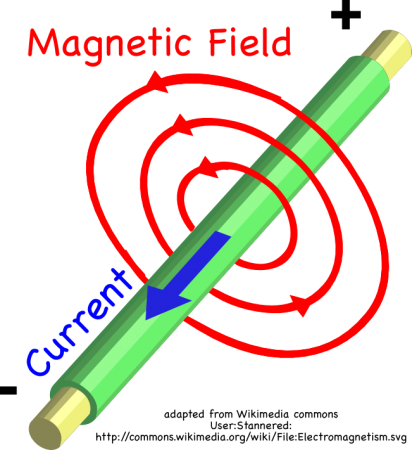
Moving charges create magnetic fields. Currents moving through a wire are moving electric charges (electrons). Therefore, current-carrying wires generate a magnetic field around them.
Bending wires into a loop will create will create a magnetic field through the loop.
- The more loops you have the stronger the magnetic field.
- The magnets created by pushing a current through loops of wire is called an electromagnet.
- If you use superconducting wire, you can create an extremely powerful superconducting magnet that can be used in magnetic levitation (maglev) trains.
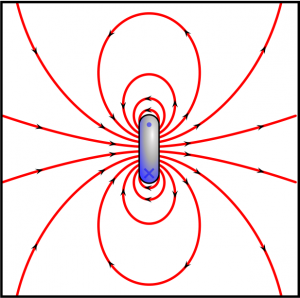
Magnets Deflect the Movement of Charged Particles (36.6)
Moving charged particles create magnetic fields. So if a moving charged particle encounters a magnetic field the two magnetic fields will interact and the motion of the particle will be deflected.

Note that the deflection only occurs when the particle is not traveling parallel to the magnetic field lines.
- The big, old styled TV’s use this to shoot electrons at the screen to make the picture.
- The Earth’s magnetic field deflects the charged particles ejected by the Sun, protecting the planet.
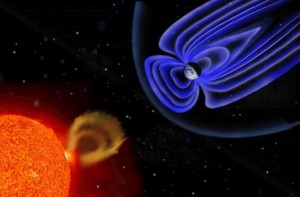
Interaction Between Magnets and Currents in Wires
Just like charged particles are deflected when they run into a magnetic field, charges running through a wire will create a magnetic field that will interact with external magnets to cause the wire to move.
- The force on the wire is perpendicular both to the direction of the current and the lines of the magnetic field.
- If you reverse the current in the wire (send it the other way) the force will be in the opposite direction.
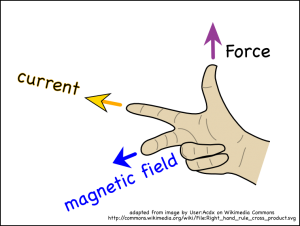
You can use this principle to create a galvanometer, which is a device that detects electric currents, or to build motors.
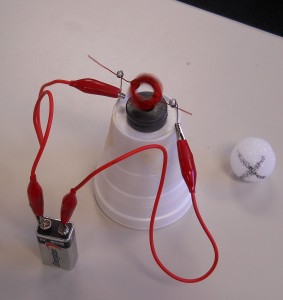
Earth’s Magnetic Field
Convection currents in the Earth’s molten, metalic outer core create the Earth’s magnetic field.
Because the pattern of convection changes over time, the Earth’s magnetic field:
- Is not located at the north pole (axis of rotation).
- Wanders: it moves a little each year.
- Flips so its poles reverse every 800,000 years or so.
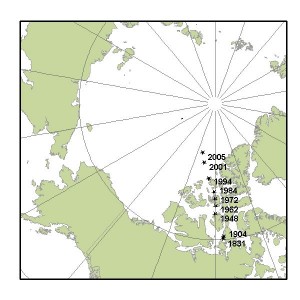
As lava cools, the magnetic minerals in it orient themselves with the Earth’s magnetic field. One way of telling how old basalt rocks on the seafloor are is by looking at the direction of their magnetic field. Since the Africa and the Americas are moving apart, slowly over millions of years, there is a suture in the Earth’s crust in the middle of the Atlantic ocean where new seafloor is made from erupting, under-sea volcanos. As a result, there are magnetic stripes all along the Atlantic Ocean (and all the other oceans too) that have recorded each time the Earth’s magnetic polarity has reversed.
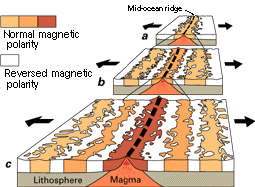
The USGS has high-resolution geomagnetic maps.
